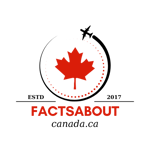Canada Day: Celebration of Unity, Heritage, and Sovereignty
Canada Day, observed annually on July 1st, is a vibrant and unifying national holiday that commemorates the anniversary of Canadian Confederation in 1867. This momentous occasion marked the joining of the colonies of Canada (divided into Ontario and Quebec), Nova Scotia, and New Brunswick into a federation of four provinces, establishing the Dominion of Canada. While not a declaration of full independence, this event laid the groundwork for Canada’s gradual journey towards sovereignty and self-governance.
A Rich Tapestry of Celebrations
Canada Day is a time for Canadians to come together and express their national pride through a myriad of festivities. From coast to coast, communities erupt in a kaleidoscope of colors, sounds, and flavors. The air fills with the melodies of live music, the aroma of sizzling barbecues, and the cheers of enthusiastic crowds.
- Parliament Hill Extravaganza: The epicenter of Canada Day celebrations is undoubtedly Parliament Hill in Ottawa. Here, the day unfolds with a grand spectacle of cultural performances, concerts by renowned Canadian artists, citizenship ceremonies welcoming new Canadians, and a breathtaking fireworks display that illuminates the night sky.
- Community Festivities: Throughout the nation, cities and towns host their own unique celebrations. Parades wind through streets, community picnics bring neighbors together, and local fairs and carnivals offer fun for all ages. Fireworks displays dazzle onlookers, and sporting events foster a sense of friendly competition.
- Global Celebrations: Canadian embassies and expat communities around the world join in the festivities, hosting events that showcase Canadian culture, cuisine, and traditions. These gatherings foster a sense of connection among Canadians living abroad and provide a platform for cultural exchange.
The Significance of Canada Day
While often referred to as “Canada’s birthday,” Canada Day signifies more than just the birth of a nation. It represents a pivotal milestone in Canada’s journey towards full independence and sovereignty. Although Canada initially remained a self-governing dominion within the British Empire, it progressively gained autonomy over several decades.
The Statute of Westminster in 1931 granted Canada greater legislative independence, and the patriation of the Canadian constitution in 1982 severed the final remaining colonial ties to Britain. This marked the culmination of Canada’s evolution into a fully independent and sovereign nation.
A Symbol of National Identity
Canada Day is a celebration of unity, diversity, and the shared values that define Canadian identity. It’s a time to reflect on the country’s rich history, multicultural heritage, and achievements on the global stage. It’s also an opportunity to embrace the spirit of inclusivity and celebrate the contributions of all Canadians, regardless of their background.
As fireworks light up the night sky and the echoes of “O Canada” reverberate across the land, Canadians are reminded of the strength and resilience of their nation. Canada Day serves as a reminder that the country’s true power lies in its people, their diversity, and their unwavering commitment to building a brighter future together.

